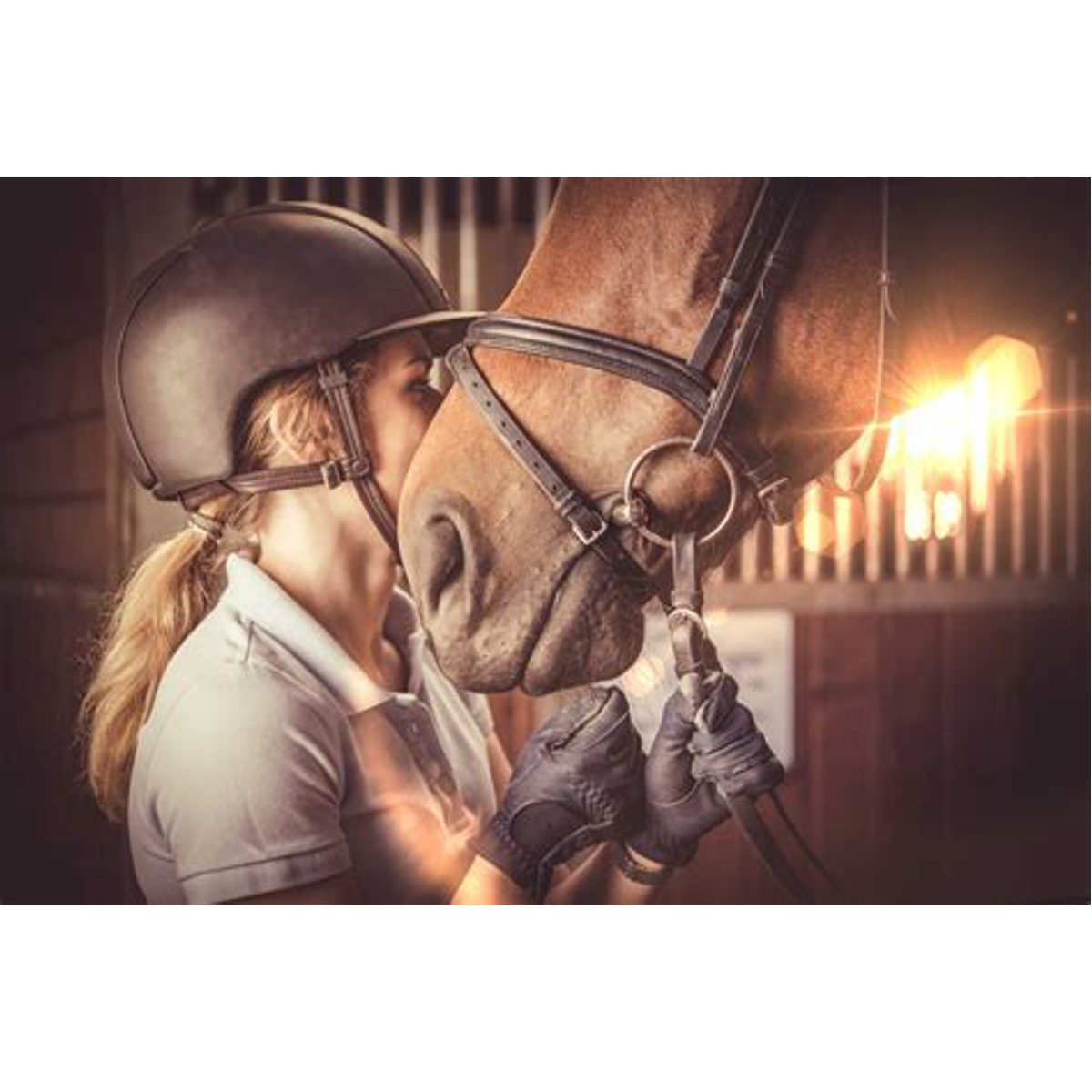Reins in Motion Supports Special Needs Community
Reins in Motion Supports Special Needs Community

The Reins in Motion (RIM) Foundation is a volunteer-based, nonprofit therapeutic equestrian riding program in Livermore for the special-needs community. It serves adults and children as young as two years old. Once accepted, clients can continue in the program and receive services regardless of their age.
After certified instructors evaluate each new rider and discuss personal goals with a rider’s parents, the instructors develop individual lesson plans and meet with parents on a quarterly basis or as needed. Additionally, RIM has a weekly two-hour program for local veterans called Reins for Heroes. It also collaborates with The Taylor Family Foundation by taking horses up to Camp Arroyo to allow campers to ride around a beautiful meadow.
What makes equine therapy so special? “Horseback riding promotes increased mobility, strength, coordination, balance, postural control, communication, and cognition,” says Katy Kempton, Executive Director of Reins in Motion. “While riding, our clients benefit from physical, occupational, and speech therapy as well as mental and emotional development.”
Riding on the back of a horse simulates human walking more accurately than any other therapy tool known, according to Kempton. The pelvis of a horse moves almost identically to the pelvis of a human. When walking, the human pelvis typically moves in three ways: in rotation (circles), anterior to posterior (front to back), and lateral (side-to-side). When a horse walks, the horse’s pelvis moves in the same three dimensions.
“A horse's movement is rhythmic, repetitive, and fluid,” notes Kempton. “Its body heat and movement helps decrease spasticity in tight muscles. When a horse moves, the rider must activate their muscles in order to stay upright and centered. Stronger core muscles lead to fine motor skills and speech production. But even more critical than physical benefits are the emotional ones. Horses bond with their human companions. They are nonjudgmental companions, only asking for love, care, play, and feeding. The relationship between the rider, horse, teacher, and volunteers promotes a can-do attitude, social skills, self-esteem, and feelings of accomplishment.”
Since it began operating in 2010, enthusiastic volunteers and donations from supporters have made nonprofit equine therapy possible in the Tri-Valley. But the year-plus Covid-19 pandemic has threatened the foundation’s mission to enrich the lives of individuals with special needs and life-threatening illness.
“Covid hit us hard, and we were closed for five months,” says Kempton, who notes the continuing expenses necessary to maintain and care for the therapeutic horses critical to the program. “We are 95 percent volunteer-based and cannot run the program without our incredible volunteer team or without financial donations. We hope the Hacienda community will consider supporting our work so we can continue to offer equine therapy for many years to come.”
For more information about the Reins in Motion Foundation, please visit www.reinsinmotionca.com.




